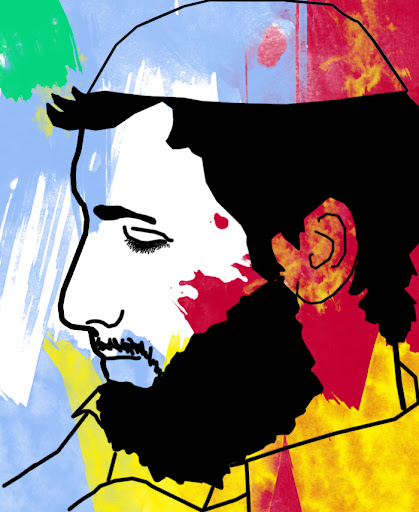
I received a copy of the first of the Two Kings book series to review on this blog . . .
The book, by the acclaimed Rabbi Fishel Jacobs . . . The press release reads:
It took three thousand years! But, the truth is out! And now you can read it to your children, as well! And it’s spreading fast!The powerful king is not so unstoppable. And the seemingly incapable man is actually a king!What we’re speaking about are the two kings each of us has inside. The Bad King, is our selfish impulsive side, the yetzer hara. The Good King is our rationale, good side, the yetzer tov.But we all know that. Right?It’s not so simple. It took Rabbi Fishel Jacobs seven best-selling books in halacha, and four years developing this latest book series for it to finally reach press.Two Kings is here and available now!Two Kings is the newest educational revolution. It is being launched by Israel Book Shop a world’s leading Jewish publisher and distributor based in Lakewood, N.J. And authored by Rabbi Fishel Jacobs a well-known Chabad rabbi and author.The Jewish book series features a young boy who is faced with a personal dilemma in performing something he needs to do. The Bad King and Good King, both depicted through heart-warming and beautiful colored pictures, each try to influence the lad. Tensions rise as they both seem to gain the upper hand.The concept is based in Keholet (9:14). The idea that the body is compared to a small city, over which two internal kings -- the yetzer tov and the yetzer hara -- fight to gain control forms the central theme of Tanya (Chapter 9)
The story itself is a simple one - using real life problems that child could easily relate to. It reads clearly, and is accompanied with large colorful (though not necessarily inspired) illustrations.
The cover of the book, and the central theme of a struggle between two kings, seems to suggest a much grander story - more of a parable in the tradition of R' Nachmen of Breslov - so I was somewhat surprised to see the mundane nature of the story in this installment (Let's Go Play) . . . I hope that more will be done in that direction in future volumes.
Of note, I was surprised that the Yetzer Hara's scepter looks suspiciously like the pitchfork of the non-Jewish devil . . .
In any event, though I have yet to 'test' the book out on any children (for various practical reasons), I suspect it will be an entertaining an educational book.
---
The story actually bears many similarities to the Classic Yin Yan Yuju video I helped make some time back (Catch it here on the blog under the 'tittle' Dance, Dance, Yoni 12!
Technorati Tags: The Two Kings, Rabbi Fishel Jacobs, Judaism, Education, Childhood, Reviews, Books, Yin Yan Yuju








5 comments:
B"H
Blessings,
Happy for all blogs about the new series, which gets the word out. Thanking you for this one.
We see the series as nothing less than expounding the teachings of the Baal Shem Tov, and chasidus. After all, the Two Kings, though based in Kohelet, Talmud and chaz"al, was chosen as the skeletal theme of Tanya.
Correct. Every aspect of the series was analyzed in detail.
Correct. The stories are meant not to be grandiose. Rather they'll touch on daily dilemmas facing each of us in our daily lives.
This is meant to express the inner battle of the two souls. Rather than, for example, external battles between good and evil.
We accepted the scepter, "suspiciously like the pitchfork of the non-Jewish devil" purposely. This was an outcome of the concept that there are, indeed, two levels of Bad Kings.
The desire for permissible things, for pleasure sake, is called a "Jewish shed (demon, inclination, devil)."
Whereas, the desire for forbidden things is called a "non-Jewish shed (demon, inclination, devil."
(Both of these are described at length in Chapter 8 of Tanya.)
So, correct on all accounts.
Blessings for continued success and health.
Rabbi Fishel Jacobs
(www.rabbijacobs.com)
i'm not religious. but the basic of two kings are so simple and have nothing to do with being a dos.
it is the basic of teaching our kid which road-map to follow.
i have four kids. i should be frank, telling you that this is what we always think about. how can we get them to the "right" way of thinking.
"two kings" is for little kids. mine are in high-school. however the basic remains the same.
i like it.
arie
i'm not religious. but the basic of two kings are so simple and have nothing to do with being a dos.
it is the basic of teaching our kid which road-map to follow.
i have four kids. i should be frank, telling you that this is what we always think about. how can we get them to the "right" way of thinking.
"two kings" is for little kids. mine are in high-school. however the basic remains the same.
i like it.
arie
i'm not religious. but the basic of two kings are so simple and have nothing to do with being a dos.
it is the basic of teaching our kid which road-map to follow.
i have four kids. i should be frank, telling you that this is what we always think about. how can we get them to the "right" way of thinking.
"two kings" is for little kids. mine are in high-school. however the basic remains the same.
i like it.
arie
Hey, you can test it out on my kids! Send me a free copy... (I actually have a degree in literacy, so I can wax poetical on the literary aspect of it....)
Post a Comment